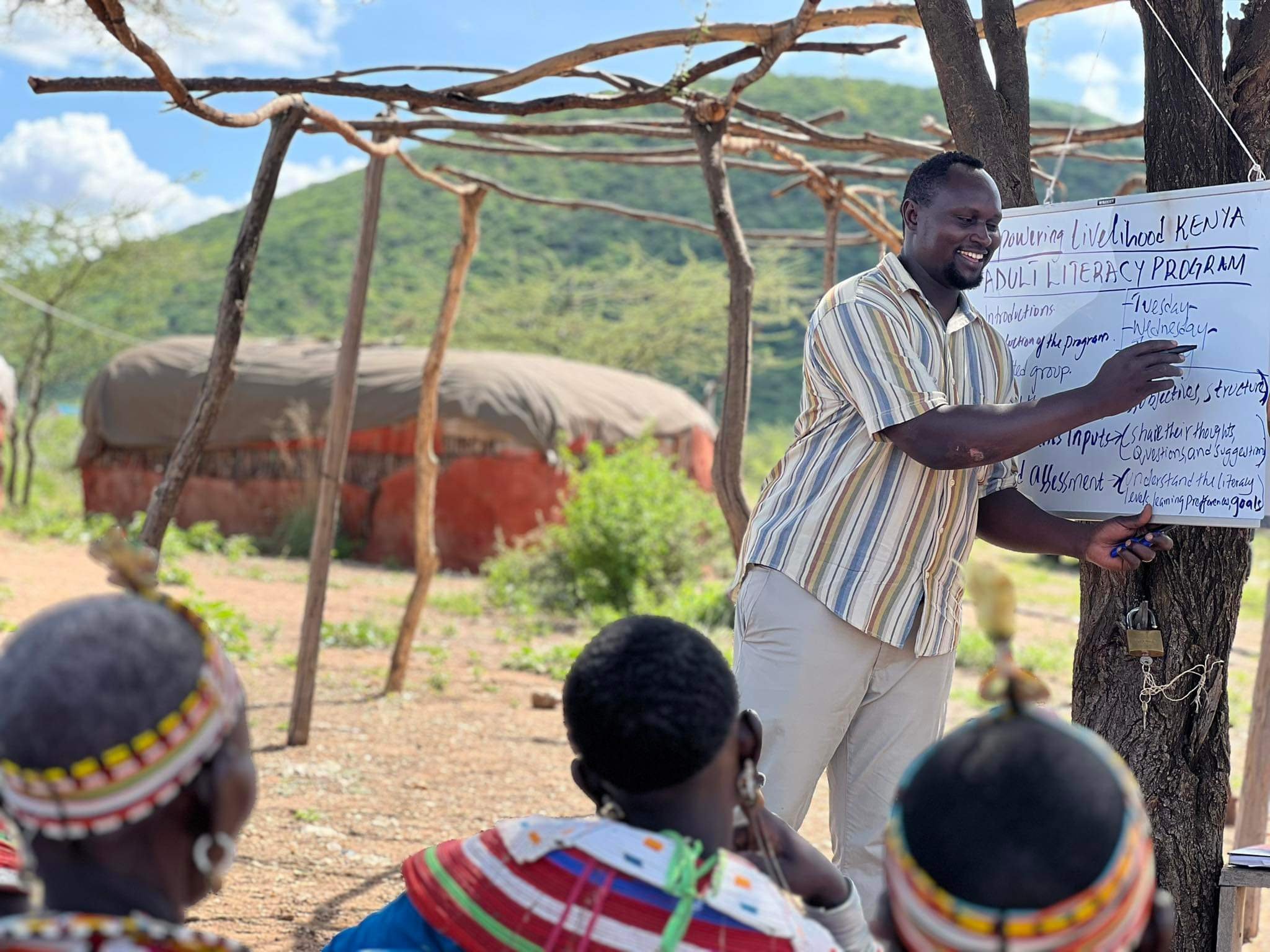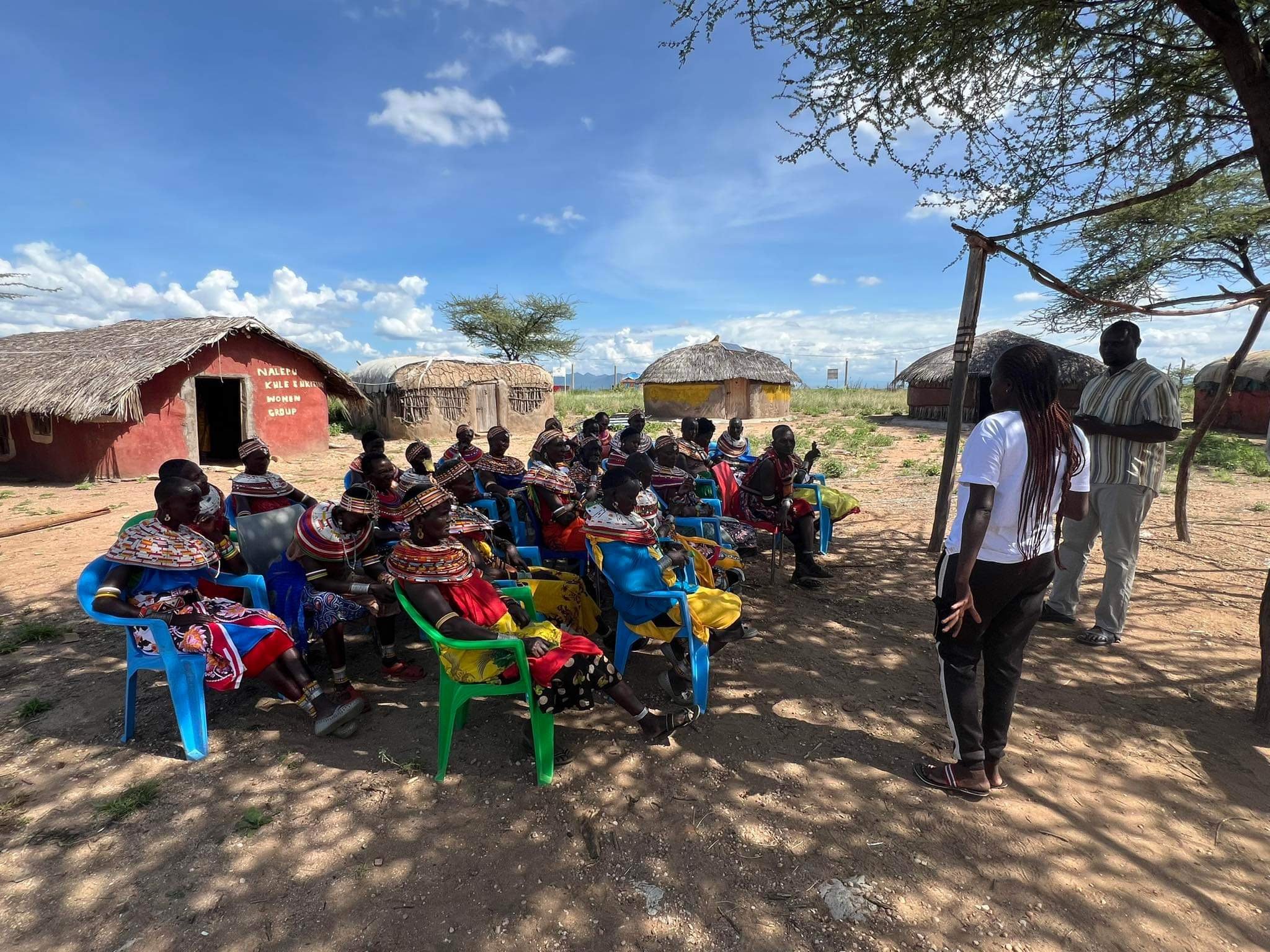Our Initiatives
-
According to the World Atlas website, literacy is defined as: "a critical piece of individual progress, social development, and economic health. Having the ability to read and write provides more educational and employment opportunities to the population, allowing people to increase their household incomes and bring their family out of low-income conditions. This skill has also been tied to improved public health conditions and increased political participation." The literacy rate in Kenya is 85% for males and 78.2% for females. Of all the African countries, Kenya ranks 15th, While progress has been made over the decades, there is room for improvement. The Foundation will direct its funding and energy toward improving literacy rates, especially for women.
-
Semi-arid regions experience erratic rainfall. It usually falls to women and children to walk considerable distances to find reliable water sources. Water quality at these sources is often polluted by livestock grazing. Rainwater harvesting at the household or village scale will improve both the reliability and quality of water. Captured water can be used for both personal health and crop irrigation. Harvesting water utilizes locally sourced materials and the equipment is easy to use and maintain. The Foundation looks forward to establishing rainwater harvesting as a low-tech solution to improve quality of life for rural Kenyans.
-
The Kenya National Library Service has libraries in all counties and major cities. These centralized facilities serve the urban population very well. There is a scarcity, however, of libraries in the villages in the remote areas. As pastoral livelihoods gradually give way to more modern economic activity, libraries will serve as important sources of information to help with this transition. The Foundation will work with partners such as schools and villages to bring the value of libraries to areas that are currently underserved.
-
Learning to sew is empowering. It can be miles to the nearest town to buy clothes and school uniforms. While sewing for personal needs is valuable, it can also lead to a tailoring business and a source of income for woman. The Foundation intends to provide sewing machines and instruction on machine operations, maintenance, and fabrics in rural areas at the village scale. Sewing co-ops are envisioned.
-
Empowering Livelihood Kenya has identified a critical need to provide opportunities for high school graduates to continue their education. Offering to cover tuition, books and living expenses for post-secondary education will allow qualified students to launch themselves into professional fields or vocational trades so they can move forward in life with skills and confidence. In partnership with the Samburu Youth Foundation, high school graduates will be evaluated for competency and motivation. Expanding educational opportunities is critical as traditional pastoral societies transition into modernity. The Foundation will focus on students c from disadvantaged backgrounds so that entire families may benefit. For young adults, such support is crucial for unlocking their potential for a better future.
-
Apiculture has tremendous potential in Kenya. Not only are bee's crucial pollinators for agriculture but have the bonus of producing honey for the local market. The main objective is to produce honey in line with establishing a model of small business. The project will go a long way in training and nurturing beekeepers as a way of creating self-employment and improving economic status. The Foundation will focus on establishing apiculture at the local level.
-
Too often secondary school education is denied to motivated students due to financial adversity. The Foundation endeavors to provide scholarships to further the education and empowerment of young students in predominantly rural villages. Expanding educational opportunities is critical as traditional pastoral societies transition into modernity. The Foundation will focus on students from disadvantaged backgrounds so that entire families may benefit from secondary school scholarships.




























